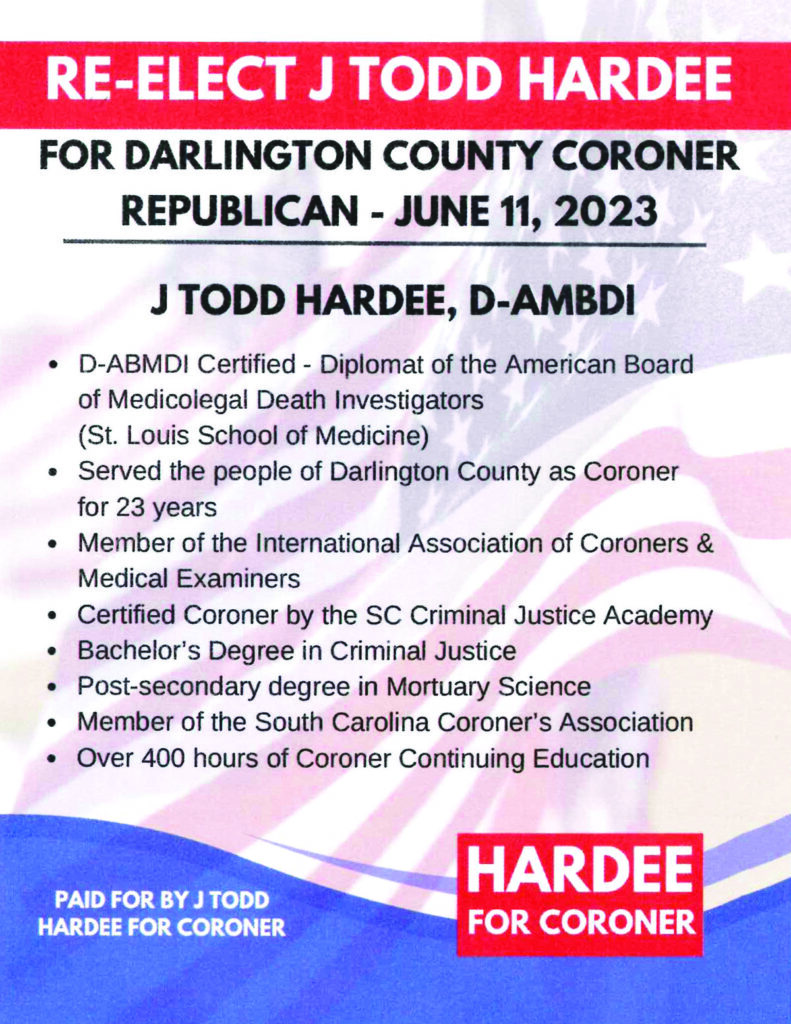County gets primer on tax rollback

By Samantha Lyles, Staff Writer, slyles@newsandpress.net
Before their regular meeting on Sep. 21, members of Darlington County Council heard a presentation from Sanford Houck of the South Carolina Department of Revenue about the tricky process of garnering data and calculating millage and tax rollbacks during reassessment years.
Back in 2014, Darlington County was supposed to factor in revenue increases from a property reassessment and rollback property taxes. For whatever reason, that did not happen and the county has been scrambling to assemble all the data and figure out how to rectify the problem ever since.

Sanford Houck of the SC Department of Revenue talked tax rollbacks with Darlington County Council before their September 21 meeting.
Photo by Samantha Lyles
To start, Houck told council that just because the county had a reassessment year, that didn’t necessarily mean that property taxes would go down and taxpayers would get a break.
“Sometimes when you recalculate millage, instead of rolling back it actually goes up,” said Houck.
Next, he clarified exactly who is responsible for setting millage in Darlington County.
“A lot of folks over the years have thought that county auditors are responsible for setting millage. They are not… you all are the body that’s responsible for that,” Houck told council.
In a normal year, counties can increase property tax millage for two reasons – the CPI (Consumer Price Index) and an allowance for population growth. In a reassessment year like 2014, Houck said the first order of business is to calculate a rollback millage by taking the prior year taxes levied divided by the new reassessment base after properties have been reappraised.
The whole point of a rollback is to keep the county from reaping outsized revenues when property values increase. But the reappraisal and recalculation of properties isn’t so simple nowadays, said Houck, noting that after about 35 years of steady property value increases, the real estate collapse has caused declining values in many areas. When this happens, a rollback may actually turn into a roll forward and taxes can increase.
Houck said for Darlington County, the key thing is to get accurate property values to work with so that taxpayers can either receive a credit for their rollback or an adjusted total for a roll forward. From there, he said, the process is actually a cakewalk.
“The formula is quite simple. If you give me the numbers, I could probably have second graders calculate a rollback millage,” said Houck. “Coming up with the numbers is somewhat of an issue. It always is, but they can certainly go up or down based on what the new values in the county were.”
Since interim county administrator Tommy Edwards informed council of the rollback oversight back in December of last year, new administrator Terence Arrington and county staffers have been searching for a solution, but that can’t happen until all the data is collected.
Council member Bobby Kilgo asked Houck his opinion on who is responsible for ensuring that such an error does not occur, whether the onus falls on council, the administrator, the finance director, or the assessor. Houck replied that rather than one responsible party, the rollback mishap was a sort of systemic failure.
“Everybody should be working together. That’s as simply as I can put it,” said Houck.


